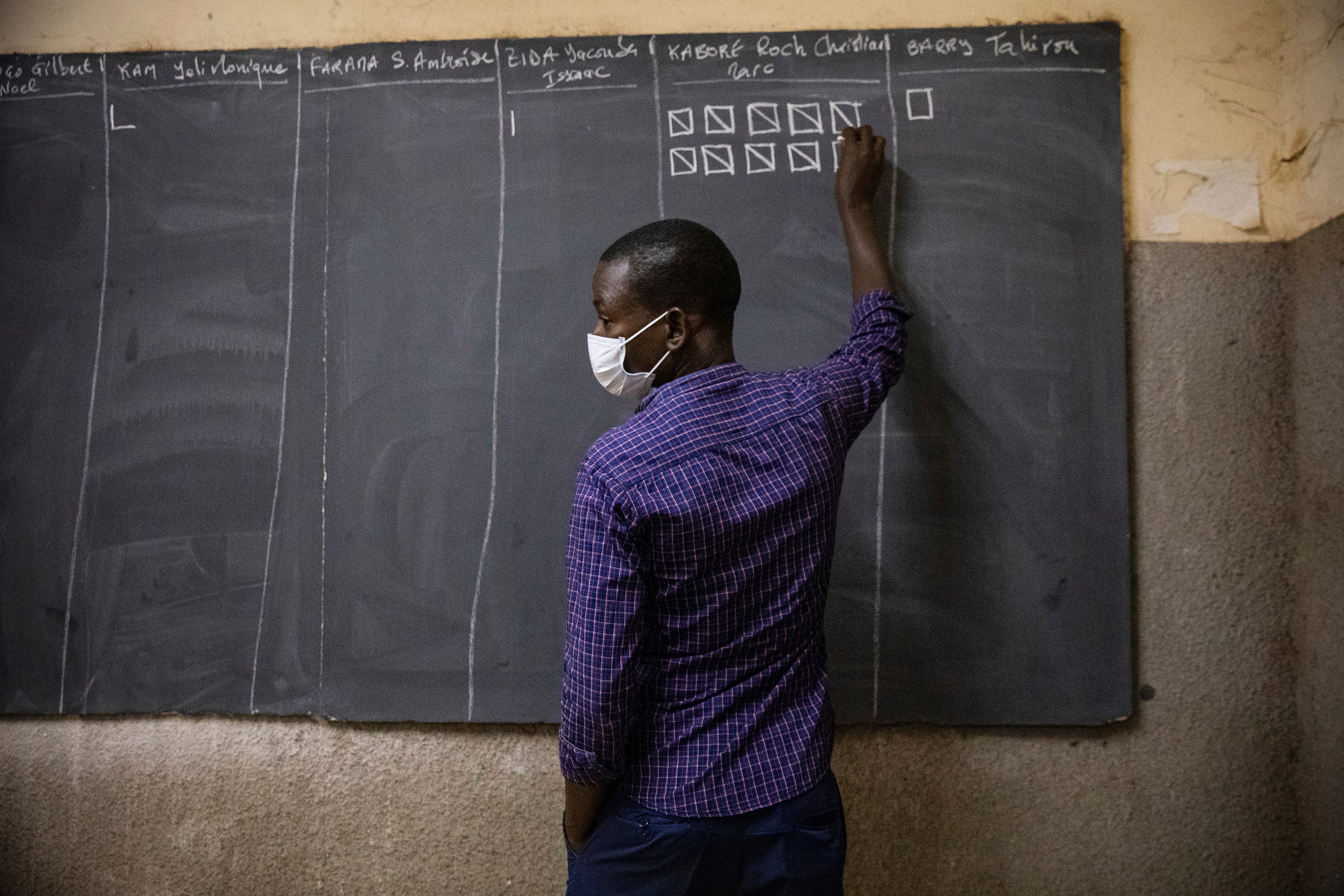Burkina Faso counts ballots; extremist threats affected vote
Votes are being counted in Burkina Faso after Sunday’s presidential and legislative elections, where threats of extremist violence linked to al-Qaida and the Islamic State prevented parts of the country from casting ballots

Your support helps us to tell the story
From reproductive rights to climate change to Big Tech, The Independent is on the ground when the story is developing. Whether it's investigating the financials of Elon Musk's pro-Trump PAC or producing our latest documentary, 'The A Word', which shines a light on the American women fighting for reproductive rights, we know how important it is to parse out the facts from the messaging.
At such a critical moment in US history, we need reporters on the ground. Your donation allows us to keep sending journalists to speak to both sides of the story.
The Independent is trusted by Americans across the entire political spectrum. And unlike many other quality news outlets, we choose not to lock Americans out of our reporting and analysis with paywalls. We believe quality journalism should be available to everyone, paid for by those who can afford it.
Your support makes all the difference.Votes are being counted in Burkina Faso after Sunday’s presidential and legislative elections, where threats of extremist violence linked to al-Qaida and the Islamic State prevented parts of the country from casting ballots.
Election workers began the counting after polls closed by holding up the ballots up for observers and marking the votes on a chalkboard beside the candidate's name. Preliminary results are expected within the next two days.
While there were no reported incidents of major attacks, threats of violence prevented people from casting ballots in hard-hit parts of the country, in the North, Sahel and East regions. Nearly 3,000 polling stations expected to open yesterday didn’t, preventing up to 350,000 people from voting, said Newton Ahmed Barry, president for the National Independent Electoral Commission, on local television.
In Tapoa province in the east, 224 polling stations out of 335 didn’t open, according to a report from CODEL, a local organization monitoring the elections. CODEL said it was “concerned about the situation in areas weakened by insecurity”. Local officials in the Sahel and Center North, the epi-centers of the violence, told the AP people were angry about not being able to vote.
“I’m upset and people are complaining because they thought they’d be able to vote and couldn’t,” Saidou Wily, a government official in Barsalogho town in the Center-North, said by phone yesterday. At least 37 villages in the region expecting to vote, were unable to, he said.
Some open polling stations had to close early due to security concerns. In Markoye Commune in the Sahel’s Oudalan province, the polls closed three hours ahead of schedule, according to a post election report from the West African Network of Peace building, an organization focused on human rights.
There were also some reports of fights between political activities in the West and Center North and attempts to “influence voting” by supporters of candidates and political parties, according to an internal report from a local human rights group seen by the AP. Halidou Ouedraogo, president of CODEL, said there were some areas in the east where no ballot paper was available, so approximately 30 people voted on fake ballots. But this was detected and rectified, he said.
Burkina Faso observers say that this election is a major test for the nation’s young democracy in the face of rising extremist attacks and the violence and intimidation show how limited the authorities’ control and legitimacy really are. Whoever “wins (the election) will confront the challenge not just of restoring security, but also showing Burkinabe that every citizen matters,” said Alex Thurston, assistant professor of political science at the University of Cincinnati in the United States.
President Roch Marc Christian Kabore has promised to secure the country and is vying for another five years against 12 other candidates. Kabore is expected to win, but the opposition hopes to split the vote, depriving him of the 51% support needed for an outright victory in the first round. Then it plans to form a coalition behind the strongest opposition candidate for the second round.
A change in Burkina Faso’s electoral code this year means that election results will be valid even if people can’t vote in parts of the country.
Opposition candidates accused the ruling party of fraud, including bribing people. The parties also accused the National Independent Electoral Commission of making changes to the electoral map, said Zephirin Diabre, a leading candidate from the Progress and Change Party.
After voting in Ouagadougou, he told the media that he will congratulate whoever the winner is, but “won’t accept results that are stained with fraud and irregularities.”